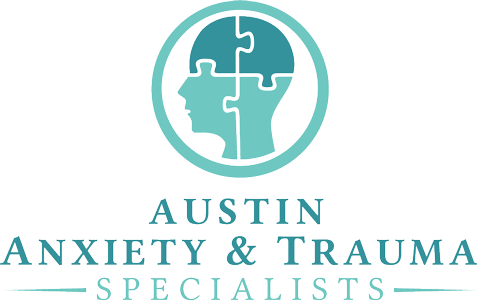In the face of challenges, it’s not uncommon to hear well-meant encouragements like “look on the bright side” or “stay positive, it’ll work out.” While there’s no denying a positive mindset can improve mental health, positivity can be toxic when it negates other feelings while only focusing on the positive. Staying positive in the face of adversity is great, but shoving down or ignoring any other emotion like sadness, anger or frustration can end up hurting you and your loved ones.
Toxic positivity can range from a cruel platitude that dismisses someone’s feelings to harmful comments that make others feel shame and guilt for their emotions at a time of great distress. But toxic positivity isn’t just aimed at others—it can be internalized, too.
Many of us might feel the need to put on a brave face or smile when we’re not feeling great and instead “stay positive.” But we all experience painful, difficult emotions. When we don’t allow ourselves to feel our emotions and accept them, even if unpleasant, these feelings can pile up until they overwhelm us or we grow detached from our emotions, leaving us feeling empty and performative as we go about our days in this toxic pretense of positivity.
Read: How to Regulate Your Emotions Without Numbing Them Out
What does toxic positivity sound like?
Here’s an example: If you felt sad because you didn’t get a job you hoped for, a friend telling you that you should be happy because it “just wasn’t meant to be” or “there’s something better out there” can be considered toxic positivity because it ignores the sadness you felt.
Your friend may have meant to just encourage you and help you move past your sadness. However, by creating a space that only allows a focus on the positive, they don’t allow an opportunity for you to recognize your emotions and safely feel your sadness or frustration. Instead, they shut your emotions out and don’t listen the way you need them to in a moment of grief or anguish. Perhaps they didn’t mean to—but even a small, “positive” yet dismissive statement can shame you for your feelings or make you feel as though your problems and emotions are not validated.
Toxic positivity can include telling yourself or others, “everything happens for a reason,” as a means to soothe yet avoid the pain. Some might go as far as saying “choose happiness,” unintentionally implying that any other emotion felt is a “choice.” Sadness, frustration, anger, and grief—all our feelings are not a choice, but our words and actions can be.
Read: How to Combat Negative Self-Talk with Self-Compassion
What can I do?
If you’re feeling sad or anxious, it’s okay to take a moment to breathe, and explore your emotions. Try these steps:
Step 1: Regulate your nervous system with some calming breathing exercises.
Step 2: Identify the emotion or reaction you’re experiencing. You can talk to yourself aloud, internally, or write it down. For example, “I’m feeling really frustrated about that interaction right now and I’m getting a headache.”
Step 3: Validate your feelings with affirmations that don’t negate your feelings to acknowledge your emotions and give you the strength you need to move forward. Here are some examples:
- “It’s okay to feel disappointed right now.”
- “That was really scary. Fear is a valid reaction. I’m safe now.”
- “You’re doing great by trying your best when you don’t feel it.”
Read our blog on emotional regulation to dive deeper into feeling your emotions without numbing them out.
Try not to bottle up your emotions or recite positive sayings as a way to hide your painful emotions or escape from stressful problems. If you’re using “positivity” to ignore your feelings of sadness or to avoid dealing with things like unpaid bills or arguments with friends, it could be hurting you more than helping. Rather than working through your emotions to grow as a person, you may be stunting your healing—and take extra damage for it, too.
When a friend or a loved one is going through something difficult, don’t expect them to have a sunny outlook through it. Instead, focus on active listening. “I’m here no matter what,” or “your feelings are really valid,” can go a long way in showing support, demonstrating you’re listening, and acknowledging their emotions and their struggles alike.
Read: How to Nurture Your Relationship While Supporting Your Partner’s Depression
It’s okay to not be okay—really.
The idea of “positive vibes only” is a sham. Not only does it dismiss and deny our emotions, it can lead us to do the same towards others in our lives. Instead of walking alongside those we care for, toxic positivity makes it so you step away from uncomfortable emotions—and in doing so, step away from meaningful connections with others.
Toxic positivity can also serve to cover up abusive behavior. Because it devalues and minimizes how you may feel, it gives an abuser the opportunity to downplay their harmful actions.
If you find yourself facing someone who keeps making statements that dismiss your struggles, here are some ways you can respond:
- Be real with yourself. It’s normal to feel stressed or anxious in difficult situations.
- Practice self-care. Take care of your needs, whether that means removing yourself from the presence of that person or doing something that makes you feel cared for and valid.
- Don’t be afraid to speak up. While uncomfortable, confronting the person over their statements could offer the person an opportunity for growth.
- Notice how you feel. If you’re not feeling great after certain interactions—such as shame or guilt for feeling down—consider why that is.
- Put your feelings into words. By labeling and naming your feelings you can lessen their negative impact. Try speaking to a loved one or journaling.
If you find that you’re struggling to unlearn toxic positivity within yourself, reach out to us at Austin Anxiety and Trauma Specialists for specialized support. Our expertise in Cognitive Behavioral Therapy (CBT) can help you learn healthy ways to face hard emotions, minimize shame and guilt, and cast toxic positivity aside. Book your first appointment with us and we’ll get you started on your journey to growth and healing. It’s okay to not be okay, but you don’t need to face that alone. We’re here to help.






